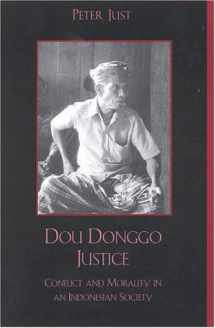
Dou Donggo Justice: Conflict and Morality in an Indonesian Society
Book details
Summary
Description
This study of justice and morality among the Dou Donggo, a highland people in Indonesia, offers an innovative approach to understanding the workings of law and dispute settlement in small communities. Peter Just argues that the operation of any legal system is best understood in the context of its moral ontology: the fundamental culture assumptions that the people have about the nature of the world, the beings that inhabit it, and their relationships to one another, as well as ideas about causation, liability, etc. The author takes Dou Donggo beliefs in evil spirits and tutelary gods, theories of conception and bodily humors, and the magical prowess of judges who are also healers and links them to the guiding principles and day-to-day operation of a consensual system of justice. The first part of the book provides contextualizing material on current debates about ethnography and the anthropology of law, a lively account of the author's field experiences, and a history of the Dou Donggo. Two subsequent chapters use anecdotes and examples to explicate the constitution of the village as a moral community and the moral ontology on which that community is based. Concluding chapters provide a 'thick description' of three real disputes witnessed by the author.


We would LOVE it if you could help us and other readers by reviewing the book
Book review



